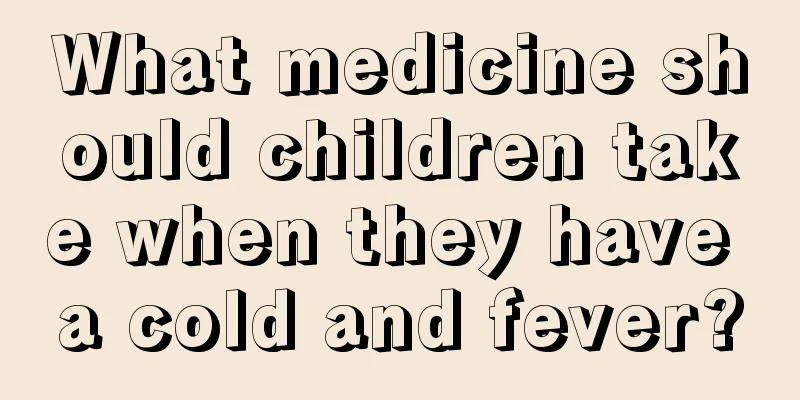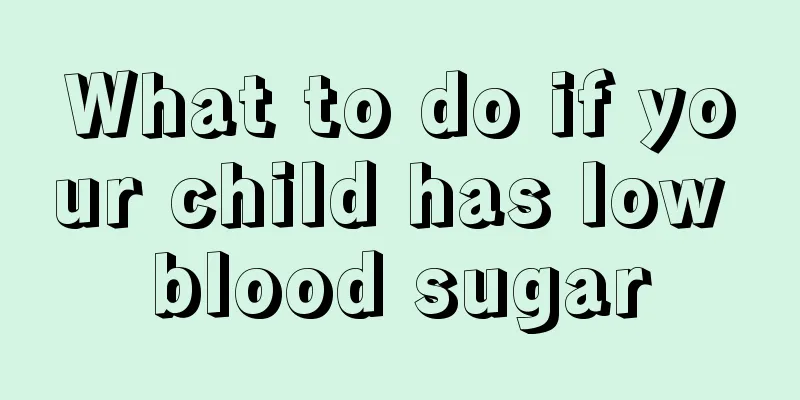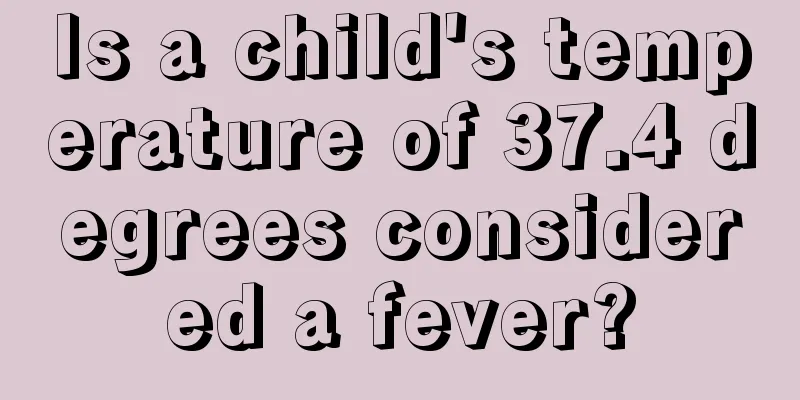What is the reason for the child's dizziness? What are the factors?

|
Dizziness is a symptom that can occur in all people, including children and the elderly. Specific reasons may include lack of sleep, hypoglycemia, hypotension, etc. Patients with such symptoms should rest more and be checked. If this continues for a long time, they should seek medical attention in time. (1) Insufficient sleep. It is more common in school-age children, mostly caused by heavy study burden and going to bed late and getting up early. They often complain of dizziness, loss of appetite, and lack of energy shortly after getting up. They usually do not feel a sense of objects spinning around them, nor do they experience nausea or vomiting. If you increase your sleep time, dizziness will disappear naturally. (2) Hypoglycemia. Mainly caused by hunger. Inadequate breakfast intake is common in childhood. The amount of food intake is often affected by getting up in the morning and rushing to school or the breakfast food is not to one's taste. If accompanied by lack of sleep at night, dizziness is more likely to occur. In more severe cases of hypoglycemia, you may feel general fatigue, cold sweats, pale face, cold hands and feet, and even coma. (3) Seasickness or motion sickness. When riding in a boat or a car, dizziness may occur due to the concussion, often accompanied by pale complexion, nausea and vomiting. There is often a family history of genetic diseases. (4) Increased intracranial pressure. The main symptoms are headache and vomiting. However, in the early stages of some chronic diseases with increased intracranial pressure, dizziness may occur. Some children also complain of mild headaches as discomfort in the head, and mistakenly think they are dizzy. It can be caused by concussion, intracranial tumors, and brain hypoxia due to various reasons. The headache may become more severe as the intracranial pressure gradually increases, and may be accompanied by vomiting and various neurological localization symptoms, such as visual impairment, hemiplegia, sensory impairment, etc. (5) Meniere's syndrome. The main symptom is vertigo, accompanied by tinnitus or deafness. May recur. It is more common in adults and less common in children. During an attack, there is a feeling of dizziness, often accompanied by nausea and vomiting. Symptoms worsen when standing up or walking, and are more likely to occur when you are tired or sleep deprived. During an attack, one can only lie still with eyes closed. Each attack lasts for hours or days and can be relieved on its own. The cause of this disease is edema or accumulation of fluid in the inner ear labyrinth, which can be caused by autonomic nervous system dysfunction or allergic reaction. Regular horizontal nystagmus can be found during the examination. If the child is asked to turn his eyes to one side, both eyeballs can be seen shaking involuntarily. |
<<: Can children with indigestion eat chicken gizzard?
>>: Why does a child sweat on his forehead when sleeping? Uncover the real reason
Recommend
What to do if your child is restless
We often feel bad in our lives. When I was a chil...
How to take care of children with cold and fever
When children have a cold or fever, they need pro...
What to do if your one month old baby doesn't sleep
Various problems of newborns will make their pare...
Mumps symptoms in children
There are many diseases in life, and different di...
What should children eat in autumn?
As autumn approaches, the climate begins to becom...
My child suddenly can't hear clearly, what's going on?
Suddenly, the child cannot hear clearly. This not...
What should I do if my child has diarrhea and vomiting in autumn?
When autumn comes, we will see many patients with...
How to deal with baby’s dandritis?
If your baby is constantly losing hair or dandruf...
Treatment of wind-heat cold in children
Wind-heat colds in children are very common in ou...
Is it normal for children to fart?
Farting is a normal phenomenon. When people fart,...
Treatment of pneumonia and bronchitis in children
We all know that children are in a period of rapi...
How to care for red spots on newborn baby's face
The weather is gradually getting hot. Many newbor...
What are the dangers of precocious puberty in adolescents?
Children's precocious puberty is mainly cause...
Precautions after appendectomy in children
Appendicitis is a common condition in children. I...
Treatment of dacryocystitis in children
If a child has any disease, many parents are at a...









